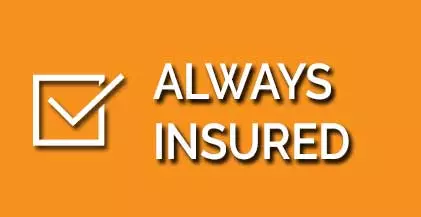Chapter 5: The PRS Exemptions Register
If a landlord considers that an exemption applies allowing them to continue to let a property below the minimum energy efficiency standard, that landlord will need to upload details and evidence of the exemption to the PRS Exemptions Register - a centralised self-certification register. Chapter five discusses the information a landlord must provide in order to lodge an exemption, and the evidence required to support each exemption type.
5.1 The PRS Exemptions Register
The PRS Exemptions Register is a digital service which allows landlords (or an agent acting on their behalf) to register valid exemptions from the minimum energy efficiency requirements. The Register service can be accessed directly here49. Alternatively it can be accessed via the gov.uk Private Rented Property Minimum Standard page here50.
Only those domestic F and G rated properties which are covered by the Regulations, and which qualify for a valid exemption, should be registered. This means that landlords need not register domestic F or G properties which are not covered by the Regulations (for example buildings which are not legally required to have an EPC - see section 1.1.4 - or which have not been subject to a new tenancy agreement - during the period 1 April 2018 to 1 April 2020 only).
Exemptions are registered on a self-certification basis, and registration of an exemption does not attract a fee or charge. Exemptions are valid from their date of registration. Enforcement authorities will monitor and audit to ensure that exemptions comply with the Regulations, but a landlord does not have to wait to hear from their local authority before they can rely on the exemption (and they may never be contacted by their enforcing authority if the authority is satisfied that the exemption is compliant).
- https://prsregister.beis.gov.uk/NdsBeisUi/used-service-before
- https://www.gov.uk/government/publications/the-private-rented-property-minimum-standard-landlord-guidancedocuments
The PRS Exemptions Register is digital by default service. However, if a landlord or agent needs advice or assistance with registering an exemption, they can email PRSRegisterSupport@BEIS.gov.uk with their query or issue. Alternatively, they can call on: 0333 234 3422.
Please note, this Assisted Digital service provides digital support in lodging an exemption on the Register (for instance, help with scanning or uploading evidence documents), but is not able to provide advice on whether individual properties meet the criteria for an exemption. This remains the responsibility of the landlord, and it is for the landlord to ensure that their property meets the eligibility criteria for any exemption registered
Public access to the Register
The Regulations require that a part of the Exemptions Register service must be available to the public, providing access to limited information about exemptions registered. This “public search” element of the service is available here51. Information available on this publicly accessible section of the service is limited to:
- addresses of properties for which exemptions have been registered;
- names of landlords of exempt properties where the landlord is not an individual person;
- the exemptions relied on (consent exemption, devaluation exemption etc);
- a copy of valid EPCs for exempt properties; and the dates on which exemptions were registered.
Exemption lengths
As discussed earlier in this guidance, the majority of exemptions which may be registered on the PRS Exemptions Register last for a period of five years. The five year period is intended to give certainty to landlords and to allow for a realistic chance that circumstances (for example, changes in fuel prices, availability of other funding mechanisms, or reductions in the cost of improvements) may have changed enough for improvements to be made in a
51 https://prsregister.beis.gov.uk/NdsBeisUi/register-search-exemptions
way which meets the requirement of the Regulations. The two exceptions to the five year exemption rule are those relating to lack of tenant consent, which last for five years or until the tenancy of that particular non-consenting tenant ends (or is assigned to another tenant), whichever is soonest, and the exemption for recently becoming a landlord, which lasts for a period of six months, starting from the date the person becomes the landlord.
Also, following amendment of the Regulations in April 2019, any “no cost to the landlord” exemption registered under regulation 25(1) will now automatically end on 1 April 2020, instead of extending for five years as previously.
As discussed above, exemptions claimed by a landlord may not pass over to a new owner or landlord of a property upon sale, or other transfer. On such a transfer, they will cease.
5.1.1 General principles of the Register
Information placed on the Register must be current at the time the exemption is registered.
Landlords must register both the exemption type and the information required to support that exemption before they can rely on it and let (or continue to let) the property. The Register and the validity of registered exemptions will be scrutinised by enforcement authorities to ensure compliance. If an enforcement authority believes that a landlord is in breach of the prohibition on letting a substandard property, including where they may have supplied misleading or incomplete information or evidence to the Register, that enforcement authority may serve a compliance notice (requesting information from that landlord which will help them to decide whether that landlord has breached the prohibition) or issue a penalty notice.
If a landlord has any questions or concerns about the evidence needed to support an exemption, they should speak with the relevant Local Authority in advance of registering the exemption. See chapter six for more information on enforcement.
Exemptions Register User Account
Before a landlord can register an exemption on the Register they will be asked to set up a unique user account for the site. This account will capture details including their name (or the company name) and contact details, including e-mail address and telephone number. The account will enable landlords to register exemptions for one or more properties and manage their exemptions via a single user portal.
Agents may also set up an agent account; this will enable them to register exemptions on behalf of landlords they represent.
Screenshots of key pages from the register are at Appendix F of this guidance.
Once a unique user account has been opened, the landlord (or their agent) will be required to submit information relating to the property they wish to exempt, alongside information and evidence to support the exemption. Table One below and on the following pages sets out the common information requirements for all exemptions, followed by the specific evidence required for each individual exemption type.
Registration of an exemption on the service will not generate an exemption certificate or other formal documentation (although a confirmation e-mail will be sent). Landlords can check on any live exemptions they have registered on the ‘dashboard’ page within their user account.
As noted above, non-personal data related to exemptions is searchable by members of the public via the exemption search page here. This search page is in place of a formal exemption certificate and can be used by anyone seeking proof that an exemption has been registered for a particular property.
5.2 Exemptions Register data and evidence requirements
Please note: as discussed in chapter four, for the individual “relevant improvements” exemptions listed below to be valid, landlords must demonstrate that there are no other energy efficiency improvement measures that can be installed as an alternative to the measure(s) that they are seeking an exemption for.
Table One:
| Exemptions Register Information requirements | |
|
Information required for all exemptions: |
The address of the relevant rental property; which exemption to the Regulations the landlord is registering; a copy of a valid Energy Performance Certificate (EPC) for the property.
|
| Additional Information and Evidence Related to Specific Exemption | |
|
Registering an exemption under the regulation 25(1)(b) exception - where a recommended measure is not a “relevant energy efficiency improvement” because the cost of purchasing and installing it would exceed the £3,500 inc. VAT cap (“high cost” exemption). See regulation 24(3). (see section 4.1.2):
|
Where a landlord intends to reply on a “high cost” exemption because even the cheapest recommended measure exceeds the value of the cap, they (or their agent on their behalf) will be expected to provide:
- Copies of three quotes for purchasing and installing the cheapest recommended measure (inclusive of VAT) from qualified installers, demonstrating that this improvement exceeds the cost cap; and
- Confirmation that the landlord is satisfied that the measure(s) exceed the cost cap. This confirmation should be provided via a signed statement uploaded onto the Register. There is also a tick-box confirmation on the appropriate register page.
The registration page also provides an optional text box for the landlord to provide further information or clarifications if desired. |
|
Registering an exemption under the regulation 25(1)(a) exception - where all relevant improvements have been made and the property remains below an E (see section 4.1.1):
|
- Details of any energy efficiency improvement recommended for the property in a relevant recommendation report (if separate to the relevant EPC), including a report prepared by a surveyor, or a Green Deal Advice Report;
- Details, including date of installation, of all recommended energy efficiency improvements which have been made at the property in compliance with the Regulations.
|
|
Registering an exemption under the regulation 25(1)(b) exception – where the property is below EPC E and there are no relevant improvements |
- A copy of the relevant energy efficiency advice report (if separate to the EPC already uploaded) demonstrating that no improvements have been recommended for the property.
Please note: if registering this exemption, the user should select the exemption option titled: ‘all relevant improvements have been made (or there are none which can be made) and the property remains below an E’. |
| which can be made (see section 4.1.1): | |
|
Registering a wall insulation exemption under regulation 24(2) (see section 4.1.3): |
- A copy of the written opinion of a relevant expert stating that the property cannot be improved to an EPC E rating because a recommended wall insulation measure would have a negative impact on the property (or the building of which it is a part). |
|
Registering a consent exemption under regulation 31(1)(A) (see section 4.1.4): |
- A copy of any correspondence and/or relevant documentation demonstrating that consent for a relevant energy efficiency measure was required and sought, and that this consent was refused, or was granted subject to a condition that the landlord was not reasonably able to comply with.
Please note: where the party who withheld consent was a tenant, the exemption will only remain valid until that tenant’s tenancy ends. When that tenant leaves the property (or after five years, whichever is soonest) the landlord will need to try again to improve the EPC rating of the property, or register another exemption, if applicable.
The exemption will also end if the tenant who withheld consent, assigns their tenancy to a new tenant. |
|
Registering a devaluation exemption under regulation 32 (see section 4.1.5): |
- A copy of the report prepared by an independent RICS surveyor that provides evidence that the installation of ‘relevant measures’ would devalue the property by more than 5%. |
| Registering an exemption upon recently becoming a landlord (regulation 33) (see section 4.1.6): | - The date on which they became the landlord for the property; and
- the circumstances under which they became the landlord (any of the circumstances set out at section 4.1.6 of this guidance). |
| Please note: Where a person wishes to register an exemption upon recently becoming a landlord, the exemption will last for a period of six months, starting from the date the person becomes the landlord. |
As discussed earlier in this guidance, any exemptions from the prohibition on letting sub-standard property which are registered on the PRS Exemptions Register may not pass over to a new owner or landlord of a property upon sale, or other transfer. If a let property is sold or otherwise transferred with an exemption registered, the exemption will cease to be effective and the new owner will need to either improve the property to the minimum standard at that point, or register an exemption where one applies, if they intend to continue to let the property.
THE DOMESTIC PRIVATE RENTED PROPERTY MINIMUM STANDARD
Chapter 1: How the Regulations Apply to Domestic Property
1.1 Domestic private rented sector (PRS) scope 14
1.1.1 Properties covered by the minimum level of energy efficiency provisions 14
1.1.2 Relevant Tenancies 15
1.1.3 Meeting the minimum standard, and sub-standard property 16
1.1.4 Energy Performance Certificate (EPC) ratings 16
1.2 When do the minimum level of energy efficiency provisions apply? 24
1.2.1 Prohibition on letting sub-standard domestic property 24
1.2.2 Subletting of domestic property 25
1.3. Mixed use properties and tenancy types 27
Frequently Asked Questions Relevant to Chapter One 30
Chapter 2: Minimum Standards Improvements and Funding
2.1 Relevant energy efficiency improvements 34
2.1.1 Relevant energy efficiency improvements and recommendations reports 34
2.1.2 “Relevant energy efficiency improvements” and funding 36
Third-party funding options 37
Landlord self-funding and the cost cap 39
Chapter 4: Exclusions and Exemptions
4.1 Exemptions 56
4.1.1 Where all “relevant improvements” have been made and the property remains below
EPC E 56
4.1.2 Where a recommended measure is not a “relevant improvement” because its cost would exceed the cost cap 57
4.1.3 Wall insulation exemption 58
4.1.4 Third-party consent exemption 59
4.1.5 Property devaluation exemption 62
4.1.6 Temporary exemption due to recently becoming a landlord 63
Chapter 5: The PRS Exemptions Register
5.1 The PRS Exemptions Register 68
Public access to the Register 69 Exemption lengths 69
5.1.1 General principles of the Register 70
5.2 Exemptions Register data and evidence requirements 71
Chapter 6: Enforcement of the Domestic Minimum Level of Energy Efficiency
6.1 Compliance and enforcement 77
6.1.1 Enforcement authorities 77
6.1.2 When the enforcement authority may decide to serve a compliance notice 78
6.2 Penalties 79
6.2.1 Financial penalties 79
6.2.2 Publication penalty 81
6.2.3 Circumstances in which a penalty notice may be served 82
6.2.4 What will be included in a penalty notice 82
6.2.5 Circumstances in which a penalty notice may be reviewed or withdrawn 84
6.2.6 Recovery of financial penalties 84
6.3 Appeals 85
6.3.1 Appeals to the First-tier Tribunal 85
6.3.2 How to apply to the First-tier Tribunal 86

Select button for EPC Type and Postcode, then hit the "Find Assessors" button. The search the page will then display assessors in your area

If you are a professional Domestic Energy Assessor (DEA) or Commercial Energy Assessor (NDEA) and are committed to providing a professional, value-based service to clients then you should consider joining the GO LOCAL EPC Alliance.
The aims of the organisation are straightforward and simple -
"to provide prospective clients with information and contact details of Energy Assessors whose drive is to provide quality service and relevant advice, at a fair price."
The service is cloud-based where Assessors select the postcodes they service and visitors enter the postcode of the property receiving your contact details and information.
For more information just complete the form and you will receive the GO LOCAL EPC information pack. Alternatively just call 01253 486 919.




THE DOMESTIC PRIVATE RENTED PROPERTY MINIMUM STANDARD
Guidance for landlords and Local Authorities on the minimum level of energy efficiency required to let domestic property under the Energy Efficiency (Private Rented Property) (England and Wales) Regulations 2015, as amended.
This section is a distillation of the published Government regulations and was correct at the time of incorporating within the GO LOCAL EPC site. For a copy of the full original document please select this link THE DOMESTIC PRIVATE RENTED PROPERTY MINIMUM STANDARD. This publication is licensed under the terms of the Open Government Licence v3.0 except where otherwise stated.
GO LOCAL EPC
Welcome to the home of "Go Local EPC". This is an alliance of independent EPC Assessors, who are both fully accredited by the Government and insured to undertake this most important assessment. Whilst at one level you have to have an EPC in order to sell, rent, or lease your property more importantly a poor EPC can affect its value. The members of "Go Local EPC" are experienced and knowledgeable producing quality reports that can support you in a positive manner.
There are NO fees or charges for using this, your price won't increase. You are dealing directly with your "Go Local EPC" only paying what you agree with them.
Select button for EPC Type and Postcode, then hit the "Find Assessors" button. The search the page will then display assessors in your area




